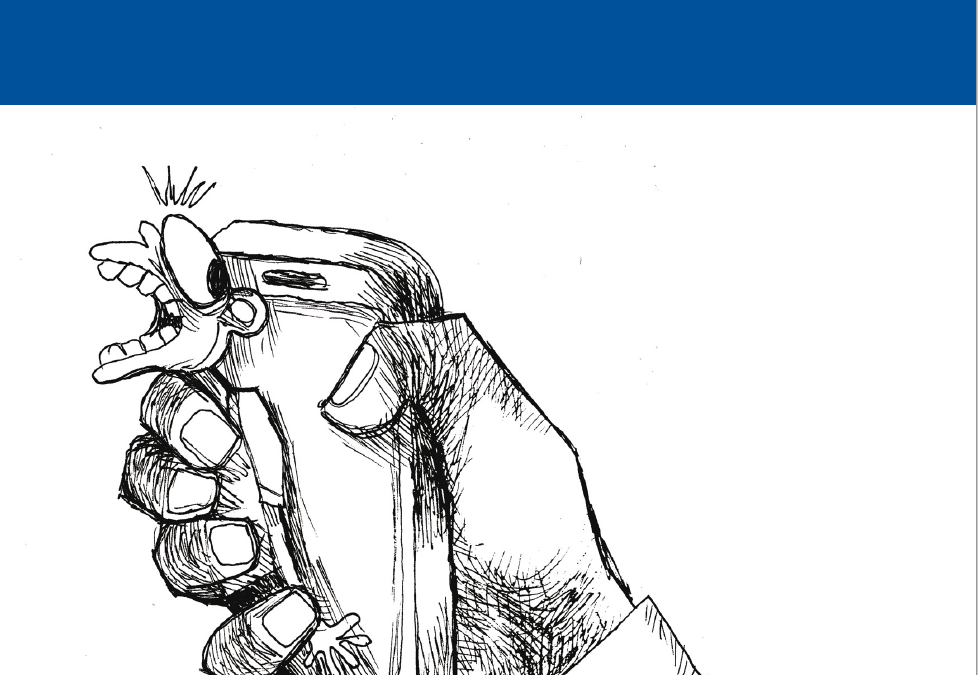
Dec 9, 2020
In a new report released today, the ICJ called on the Vietnamese authorities to take swift measures to reform its laws and practices around the use of the internet and to stem the pattern of accelerating human rights abuse of individuals online.
The paper, Dictating the Internet: Curtailing Free Expression and Information Online in Vietnam, details the deteriorating human rights environment online in Vietnam. The paper tracks, in particular, how State authorities have increasingly abused laws and the administration of justice to violate the rights to freedom of expression, opinion and information online.
The paper follows on from the ICJ’s 2019 regional report entitled Dictating the Internet: Curtailing Free Expression, Opinion and Information Online in Southeast Asia assessing non-human rights compliant legal frameworks and case studies across Southeast Asia, including Vietnam.
The paper outlines emerging developments and trends in 2020 and tracks interferences not only with freedom of expression, opinion and information online, but also the rights to privacy, liberty, fair trial, freedom of association and assembly, life and health.
Multiple case studies highlight how affected individuals have been subject to harassment, investigation, criminal charges, prosecution, and imprisonment for exercising their rights to free expression and information on online platforms. The Dong Tam dispute and trial – which reflected the abuse of rights online and offline of individuals seeking to bring to light human rights violations relating to the land rights dispute – is also highlighted as an emblematic case study.
The paper further explains how, within the context of the COVID-19 pandemic, freedom of expression and information online has been arbitrarily curtailed by the State in the misguided name of protecting public health.
Along with applying ill-conceived laws to harass individuals, Vietnamese authorities have continued to employ other tactics to ensure State control of expression and content online, including through cybersurveillance and policing of online platforms, and applying pressure on technological companies to comply with demands for censorship by silencing human rights defenders on their platforms.
The paper provides specific recommendations to the Vietnamese Government to safeguard in law and practice the rights to freedom of expression, opinion and information online as well as offline, in line with the State’s international human rights obligations.
The full report is available in English here. (PDF)
Contact
Kingsley Abbott, ICJ Senior Legal Adviser, email: kingsley.abbott@icj.org
See also
ICJ, ‘Southeast Asia: ICJ launches report on increasing restrictions on online speech’, 11 December 2019
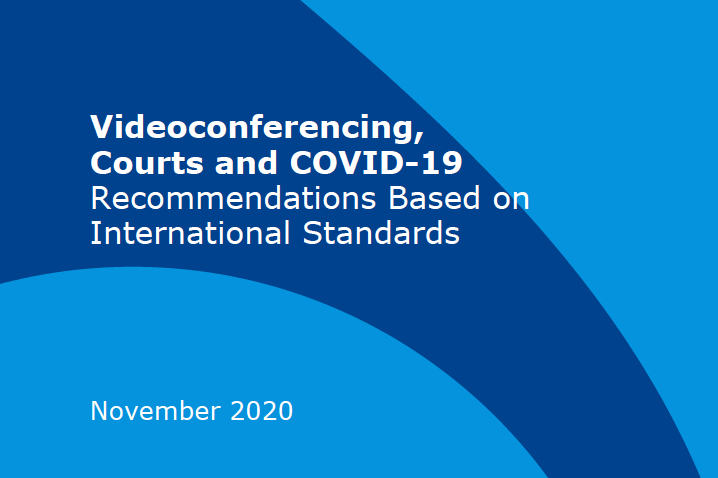
Nov 26, 2020
The ICJ has published global guidance on the use of videoconferencing in judicial proceedings, particularly in the context of the COVID-19 pandemic.
The briefing note supplements more general guidance on the Courts and COVID-19 issued in May 2020.
The guidance recognizes the challenges faced by judiciaries in balancing the right to health of judges and others involved in court proceedings, with the fundamental role of the judiciary in securing access to justice, legal protection of human rights, and the rule of law.
It sets out a series of recommendations based on an analysis of relevant provisions of treaties and other international instruments, as well as international and regional jurisprudence.
While encouraging judiciaries and other authorities to seek to ensure availability of videoconferencing capabilities for litigants who voluntarily choose to use it, as well as in certain other circumstances, the guidance also highlights limits on the non-consensual imposition of videoconferencing on certain kinds of hearings, particularly criminal trials and judicial review of deprivation of liberty.
Among the topics covered are the following:
– ensuring public access to proceedings conducted by videoconference;
– the scope for videoconferencing in criminal proceedings, and the particular issues with its use in criminal trials;
– serious concerns with non-consensual imposition of videoconferencing for the judicial review of deprivation of liberty;
– essential considerations for ensuring the right to a lawyer in any use of videoconferencing.
Read also
The guidance is part of a wider body of ongoing work by the ICJ on human rights, the rule of law, and COVID-19. Other publications can be found here.
Download
Universal-videoconferencing courts and covid-Advocacy-2020-ENG (full paper, in PDF, in English)
Universal-videoconferencing courts and covid-Advocacy-2020-ARA (full paper, in PDF, in Arabic)
Universal-videoconferencing courts and covid-News-Press Release-2020-ARA (Press Release, in PDF, in Arabic)
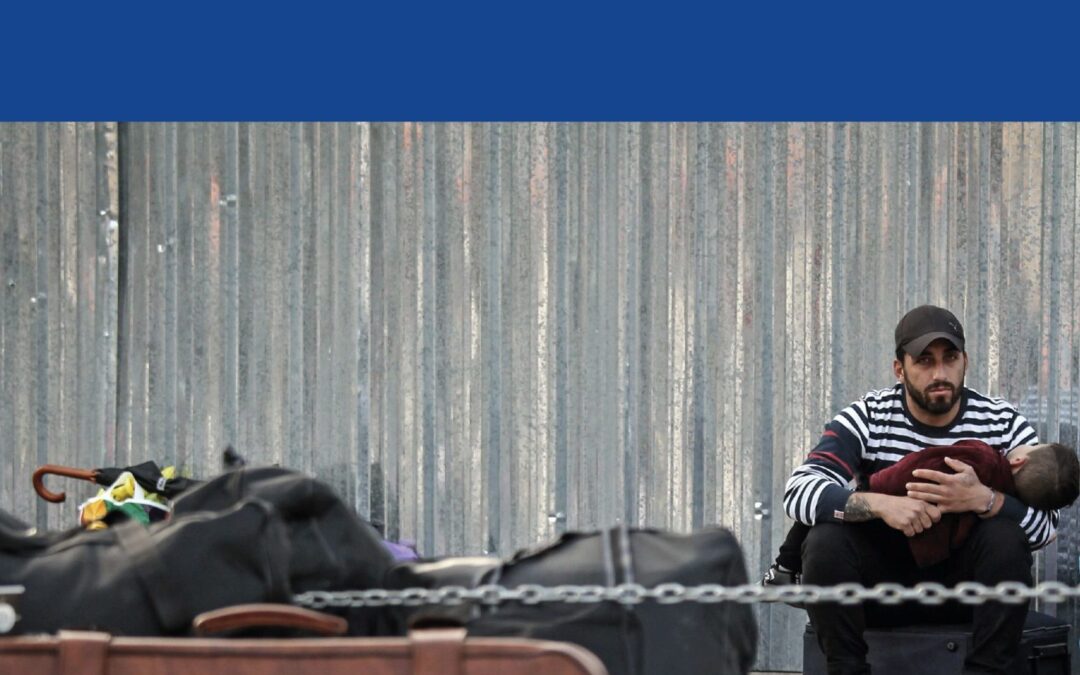
Nov 20, 2020
In a report published today, the ICJ calls on the Lebanese authorities to adopt and enforce a just, fair and effective legal and policy framework to address the plight of refugees, migrants and stateless persons and ensure the protection of their human rights in full compliance with Lebanon international law obligations.
In particular, the ICJ calls on the Lebanese authorities to strictly comply with their non-refoulement obligations, including by ensuring that no individual is transferred to a country where he or she faces a real risk of persecution or other forms of serious harm, such as torture or cruel, inhuman or degrading treatment or punishment.
“Lebanon has the highest refugee population per capita of any country in the world, yet it lacks any framework or procedures for individuals claiming international protection to have access to an effective process for determining their entitlement to such protection”, said Said Benarbia, ICJ MENA director.
“It is high time for the Lebanese authorities to address this normative gap and reverse their harmful policies and practices that undermine refugees’ human rights, including their right to not be subjected to refoulement.”
In its report Unrecognized and Unprotected: The Treatment of Refugees and Migrants in Lebanon the ICJ analyses how normative gaps, together with restrictive provisions of the 1962 Law of Entry and Exit, including those criminalizing “irregular entry”, undermine the right of refugees to an individual examination of their asylum claim, their right to liberty and security of person, and their right to an effective legal remedy against human rights violations.
The Lebanese authorities should ensure that no-one is deprived of their liberty solely on grounds of their immigration status, including in cases of “irregular entry” or stay. Detention must only be resorted to when there is both a clear legal and factual basis to justify it, and when it is necessary, reasonable and proportionate in the circumstances of the individual case at hand.
In the report, the ICJ expresses concern that legal and policy gaps – coupled with excessive and unchecked powers to adopt and implement migration and asylum-related policies on the part of the authorities, such as the General Security Office, local municipalities, the Ministry of Labour and the Lebanese army – are the reasons why violations of the human rights of refugees, migrants and stateless persons are rife in Lebanon.
In light of this, the ICJ calls on the Lebanese Council of Ministers and Parliament to ensure that all migration and asylum-related policies fully comply with Lebanon’s obligations under international law.
The restrictions on Syrian refugees with respect to their residency and freedom of movement and the raids and arbitrary arrests and detentions they are subjected to effectively continue to force many of them to return to Syria. Their return in those circumstances is anything but voluntary and amounts to constructive refoulement.
“Lebanon should establish a moratorium on all removals to Syria and ensure that internationally protected individuals are not transferred to a country where they face a real risk of persecution,” Benarbia added.
The restrictions and high costs imposed for obtaining or renewing legal residence permits in Lebanon force many migrants and refugees to remain in the country “illegally”, contributing to significant violations of their right to freedom of movement and to making them further liable to detention and deportation.
Background:
The ICJ addresses a number of recommendations for the Lebanese authorities in this report, including the following:
1. Become a party to the following treaties:
- the 1951 UN Refugee Convention and to its 1967 protocol;
- the 1954 UN Convention relating to the Status of Stateless Persons and the 1961 Convention on the Reduction of Statelessness;
- the International Convention on the Protection of the Rights of All Migrant Workers and Members of Their Families;
2. Ensure that people entitled to international protection, chiefly refugees, are not penalized for their “illegal” entry and stay;
3. Ensure that migrants, refugees, asylum seekers and stateless persons have – at all times and regardless of their immigration status under domestic law – the right to access the courts, to claim and be granted an effective remedy and reparation for violations of civil, political, economic, social and cultural rights recognized under international law;
4. Ensure that all allegations of torture and other ill-treatment against refugees and migrants, including those instances linked to death in police and military custody, be investigated promptly, independently and thoroughly, and those responsible be held to account.
Contact
Said Benarbia, Director, ICJ Middle East and North Africa Programme, t: +41-22-979-3817; e: said.benarbia(a)icj.org
Download
Lebanon-Migrant rights-Publications-Reports-Thematic reports-2020-ENG (full report in English, PDF)
Lebanon-refugees report-News-2020-ARA (story in Arabic, PDF)
Lebanon-Migrant rights-Publications-Reports-Thematic reports-2020-ARA (full report in Arabic, PDF)
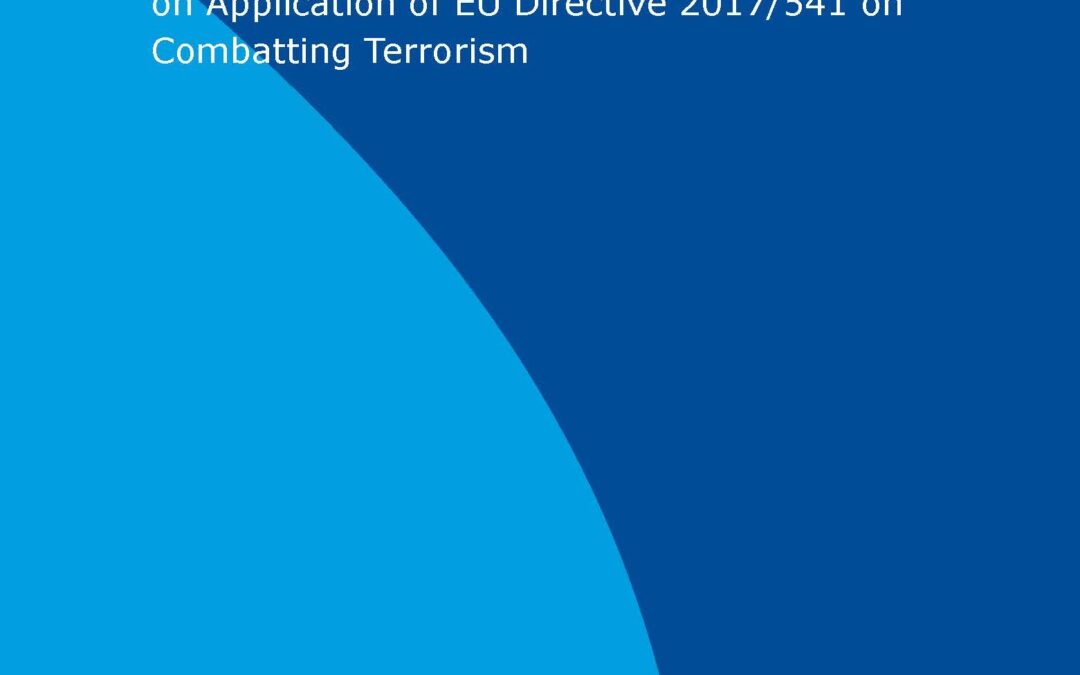
Nov 18, 2020
The ICJ and partners published today Counter-terrorism and human rights in the courts: guidance for judges, prosecutors and lawyers on application of EU Directive 2017/541 on combatting terrorism (the Guidance).
The Guidance, published by the ICJ together with its partners Human Rights in Practice, Nederlands Juristen Comité voor de Mensenrechten (NJCM) and Scuola Superiore Sant’Anna di Pisa, addresses the appropriate interpretation and application of the EU Directive in practice throughout investigation, prosecution and trial, consistently with international and EU human rights law and standards.
The Guidance (Counter-terrorism and human rights in the courts: guidance for judges, prosecutors and lawyers on application of EU Directive 2017/541 on combatting terrorism) was prepared as part of the JUSTICE project, building on expert roundtables held in 2019 across the EU (in Pisa, the Hague, Madrid and Brussels) with judges, lawyers, prosecutors and other relevant experts from a number of EU Member States, as well as national studies and consultations with judges, lawyers and prosecutors in Belgium, the Netherlands, Germany, Spain, Italy and France. The project was further supported by associate partners: Magistrats Européens pour la Démocratie et les Libertés (MEDEL), Juezas y Jueces para la Democracia in Spain and Neue Richtervereinigung in Germany.
It gives a comprehensive overview of the relevant international and EU legal standards and criminal law principles on investigation, prosecution and trial of terrorism cases, based on the EU Directive, to ensure that the Directive is applied in a human rights compliant manner.
The Guidance provides in its section II an overview of applicable international law and standards in law and practice. It covers counter-terrorism law in states of emergency, rights of victims of terrorism and human rights implicated by the Directive offences (principle of legality, non-discrimination, restrictions on freedom of movement, expression, association, assembly, privacy, private and family life and the right to political participation). Section III provides specific guidance and related commentary on each of the Directive offences and section IV covers the rights of suspects in the criminal process – investigation, prosecution and trial.
The Guidance is being launched today in an on-line webinar co-hosted by MEP Saskia Bricmont the Greens from the European Parliament and the speakers include national judges and lawyers, international experts, and representatives of the European Commission, Eurojust, the EU Fundamental Rights Agency and Members of the European Parliament, see the agenda here.
Contact:
Róisín Pillay, Director Europe and Central Asia Programme; roisin.pillay(a)icj.org
Karolína Babická, Legal adviser Europe and Central Asia Programme; karolina.babicka(a)icj.org
Download:
Guidance-counterterrorism-ENG-2020 (Guidance in English)
Guidance-counterterrorism-FR-2020 (Guidance in French)
Guidance-counterterrorism-ITA-2020 (Guidance in Italian)
Guidance-counterterrorism-DE-2020 (Guidance in German)
Guidance-counterterrorism-ESP-2020 (Guidance in Spanish)
Background research documents:
The summary of baseline studies related to national legal frameworks in Belgium, Italy, the Netherlands, Germany and Spain
The summary of research on national legislation in France, Greece, Cyprus, Poland, Portugal, the Czech Republic and Romania
Reports from four expert Roundtables held in April-November 2019 in Pisa (Italy), the Hague (the Netherlands), Madrid (Spain) and Brussels (Belgium)
Articles/blogs published within the Justice project:
Adélaïde Jacquin: Religious discrimination in counterterrorism in France, Opinio Juris, 28.5.2020
Mohamed Rafik: Using Administrative Powers in Order to Combat Terrorism Brings Down the Democratic Constitutional State, Opinio Juris, 22.10.2020
Simon Bekaert: The Spanish Rapper Extradition Case Before a Belgian Court Fires up the Legal Discussion on Freedom of Expression and Other Fundamental Rights, Opinio Juris, 13.11.2020
Karolina Babicka: EU Counter-terrorism Directive 2017/541: impact on human rights and way forward at EU level, Opinio Juris, 20.11.2020
Sizaire, Vincent, On a proper application of the European Union directive on combating terrorism / Vincent Sizaire. – In: European human rights law review, issue 3 (2020), p. 205-210
Duffy, Helen, “The EU Directive and the Expansive Criminalisation of Terrorism” in Paulussen and Capone, “Returning Foreign Fighters: Responses, Challenges and Ways Forward” (2nd ed), to be published in 2021
DAUSTER, Manfred , Nationality at Stake: Repatriation of German Foreign Fighters and their Families under German Law / Manfred Dauster. – In: European Human Rights Law Review, issue 6 (2020).
Gaetana Morgante: From the perspective of the national partner to the project in Italy.
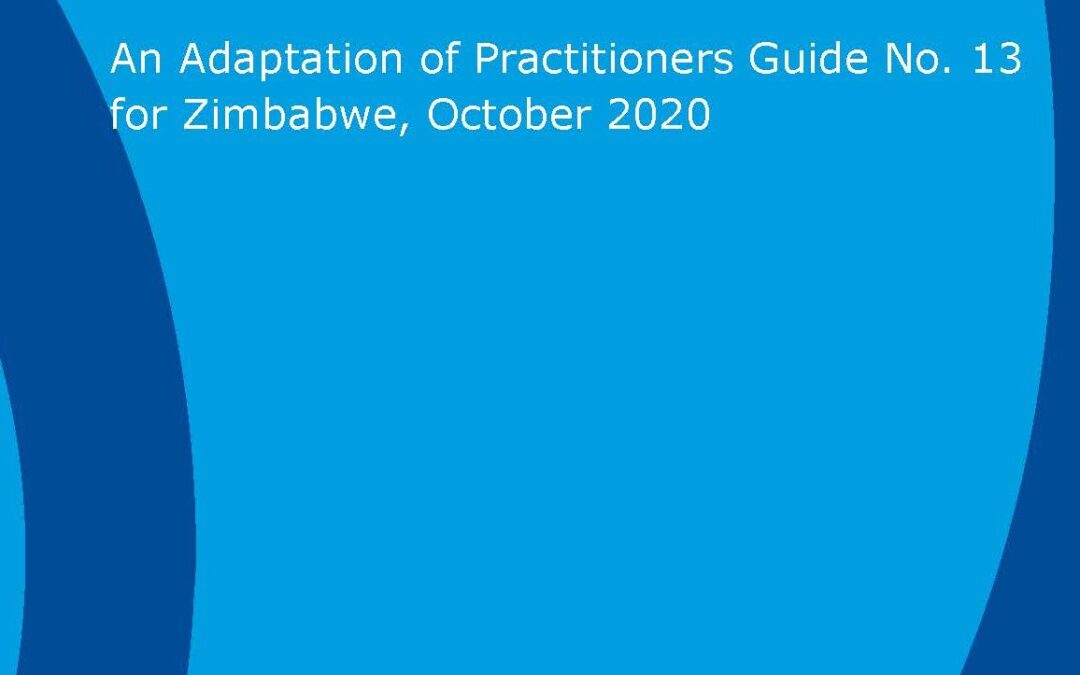
Nov 17, 2020
The ICJ has published Judicial Accountability: An Adaptation of Practitioners Guide No. 13 for Zimbabwe, which analyzes the Zimbabwean legal framework in light of international and regional standards on accountability mechanisms for judicial corruption and judicial involvement in human rights violations.
The Guide reproduces the text of the ICJ’s 2016 global publication, Judicial Accountability: Practitioners’ Guide No.13, supplementing it with detailed information, analysis and recommendations specific to the context of Zimbabwe.
The Guides focus on international and regional standards and best practices on not only the accountability of individual judges, but also the accountability of the judiciary as an institution and State responsibility under international law, particularly in relation to the harm caused to victims of violations by judges.
The adaptation of this Guide to the Zimbabwean context specifically, is meant to assist practitioners in Zimbabwe, including judicial officers and lawyers, to engage with the domestic legal framework from a position informed by international standards and best practices.
This publication should be a particularly useful and relevant resource for the Zimbabwean judiciary whose theme for this calendar year is “Judicial Transparency and Accountability”.
Speaking on this publication and its relevance to the Zimbabwean context, ICJ Senior Legal Adviser, Blessing Gorejena highlighted how topical the issue of judicial independence in Zimbabwe has been:
“Judicial accountability is at the core of a functional and independent judiciary. The independence of a judiciary cannot just be assumed, it must be evidenced by functional and effective accountability mechanisms, systems and processes which leave little to no room for doubts about the judiciary’s ability to dispense justice without fear or favor. As such, like justice, judicial independence must not only be said to exist but must be seen to exist. Accountability is how judicial independence is seen to exist.”
This Guide considers a multitude of topics relating to judicial accountability, including but not limited to an appraisal of Zimbabwe’s duties to ensure an independent, impartial and accountable judiciary under international law and an analysis of the relevant accountability bodies in Zimbabwe.
Recommendations are consequently made in an effort to tackle inconsistencies between the adopted practices in Zimbabwe and its duties under international law.
Contact
Blessing Gorejena, Senior Legal Adviser and Team Leader of ICJ Zimbabwe Project, t: +263 77 215 1989, e: blessing.gorejena(a)icj.org
Elizabeth Mangenje, Legal Adviser, t: +263 77 474 2420, e: elizabeth.mangenje(a)icj.org
Download
Zimbabwe-PG No 13 Accountability adaptation-Publications-Reports-Thematic report-2020-ENG (full guide, in pdf)









